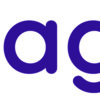Welcome to our March research update! Getting involved with research is an important way to impact food allergy treatments, education, and awareness.
This month, we are highlighting research opportunities and news on:
- Clinical trial for children with peanut allergy
- Clinical trial for teens and adults with eosinophilic gastritis (EoG) with or without eosinophilic duodenitis (EoD)
- Epinephrine nasal spray
- FDA approval of XOLAIR® for food allergy
Clinical Trials
Now Enrolling: The VITESSE Phase 3 Study for Peanut Allergy

The VITESSE phase 3 clinical research study is looking for children 4 to 7 years of age who have been diagnosed with peanut allergy and are currently following a strict peanut-free diet. Study doctors are testing an investigational drug patch (also called study drug patch) to learn how well it works and how safe it is in children with peanut allergy.
- What should I know about the VITESSE study?
- To be eligible for this study, participants must be*:
- 4 to 7 years of age
- Diagnosed with peanut allergy
- Currently following a strict peanut-free diet
*Other inclusion/exclusion criteria will apply.
- This study will consist of at least 12 study visits and 5 phone calls over a period of approximately 58 weeks (about 1 year)
- Participants will be randomly assigned (by chance) to receive the study drug patch or placebo patch (looks like the study drug but contains no active drug). Participants will have about a 67% (2 in 3) chance of receiving the study drug patch and about a 33% (1 in 3) chance of receiving the placebo patch
- The health and safety of participants will be monitored throughout the study
- Participant data and information will be kept confidential according to applicable laws for clinical research studies
- Study participants will receive all study-related procedures and the study drug patch or placebo patch at no cost
To learn more about the VITESSE phase 3 study and eligibility criteria, please visit VitesseAllergyStudy.com or ClinicalTrials.gov (identifier: NCT05741476).
Study sponsored by DBV Technologies
Is Eosinophilic Gastritis with or without Eosinophilic Duodenitis Affecting Your Daily Life?

You may be eligible for the Engage clinical study, which aims to investigate a study drug for EoG with or without EoD.
You may be eligible if you:
- Are ≥ 12 years old
- Have been diagnosed with EoG by endoscopic biopsy
- Have had at least 2 EoG episodes every week in the 8 weeks prior to joining the study (stomach pain, stomach cramping, nausea, bloating, early satiety, loss of appetite, vomiting, diarrhea)
There are other requirements to participate. To learn more about Engage, and whether it may be right for you, please visit the study website.
Protocol Number: R668-EGE-2213
© Regeneron Pharmaceuticals, Inc. All rights reserved.
Latest Food Allergy News
Anaphylaxis
News on NDS1C Epinephrine Nasal Spray
Bryn Pharma recently announced new information about their epinephrine nasal spray (NDS1C). The spray is designed to treat severe allergic reactions, also known as anaphylaxis.
The data presented showed the spray is effective in delivering the medicine and is safe for people to use. When given in repeated doses, it also showed no negative effects on safety or effectiveness compared to the single dose.
Data also showed that the spray was absorbed in the body faster than other types of epinephrine injections. This means it could be another option for people who need quick relief from severe allergic reactions if approved.
Food Allergy
XOLAIR® (Omalizumab) Shown to Reduce Allergic Reactions to Multiple Foods in NIH Trial
The Food and Drug Administration (FDA) recently approved XOLAIR (omalizumab) to help reduce allergic reactions caused by certain foods in some adults and children 1 year or older. The approval was supported by results from a recent clinical trial, called OUtMATCH, which was sponsored and funded by the National Institutes of Health (NIH).
The study included children and adolescents with allergies to peanut and other foods including tree nuts, egg, milk, and wheat. The study showed that nearly two in three participants who took omalizumab could eat about 2.5 peanuts without a bad allergic reaction. This was compared to less than 7% who didn't take this treatment. Similar results were seen with eggs, milk, wheat, cashews, walnuts, and hazelnuts. The results from this study show that this antibody therapy has the potential to protect children and adults if they accidentally eat one of their food allergens.
Finally, this study revealed that the use of XOLAIR for the treatment of multiple food allergies was safe. The most common side effects were injection site reactions and fever, which were both minimal compared to those study participants who did not receive this treatment.
Even with this medicine, people will still need to avoid foods they're allergic to. XOLAIR should not be used for the emergency treatment of any allergic reactions. But the treatment may help protect people with food allergy in cases when they accidentally ingest a small amount of the foods they are allergic to. More research will be done to see how well the medicine works over time.
Medical Review: March 2024 by John James, MD; Michael Pistiner, MD, MMSc; and Sarbjit Singh Saini, MD
Stay in the loop - get news and research updates straight to your inbox with our e-newsletters.



Comments (0)